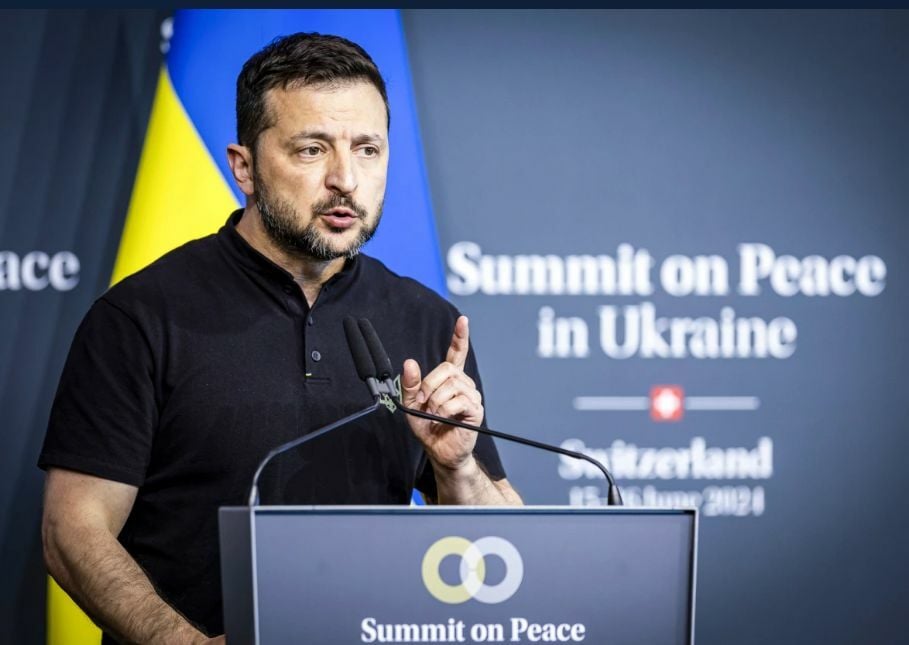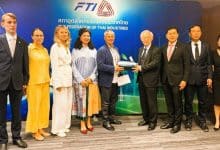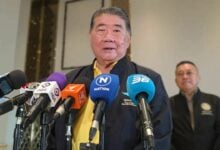Ukraine peace summit show different priorities for Asian leaders

Despite Ukrainian President Volodymyr Zelensky’s appeal for broader Asian leader attendance, most Asian countries were represented by ministers, officials, or other representatives. Besides Kishida, Timor-Leste Prime Minister Xanana Gusmao was the only other head of state from Asia in attendance.
As noted by Associate Professor Chong Ja Ian from the National University of Singapore’s political science department, many Asian nations do not see the conflict as their primary concern. He adds that any Asian turnout was a positive sign for Ukraine.
“Many in Asia see the conflict in Ukraine as distant and not a primary concern, despite its impact on grain supply and fossil fuel prices. Zelensky is trying to muster as much support as he can for his country, whether in terms of pushing for an end to the conflict or rebuilding his country after the war.”
Senior representative of the ISEAS – Yusof Ishak Institute, Ian Storey suggested that the absence of Russian participation might explain the lack of Asian heads of state at the summit.
Pessimism
“Some states who oppose Russia’s invasion may not send their head of state or government because the summit is unlikely to achieve a breakthrough, especially given that Russia will not attend.”
This limited representation from Asia underscores the challenge Zelensky faces in rallying global support for Ukraine amidst a prolonged conflict often termed an existential crisis for Europe. In his speech, Kishida emphasised the significance of global participation in the summit.
“Realising fair and lasting peace in Ukraine would be symbolic and important to steer the world to harmony, not to division or confrontation,
“Based on a sense of crisis that what is happening in Ukraine might occur in East Asia tomorrow, Japan has imposed strict sanctions on Russia and provided strong support for Ukraine.”
Of the 92 countries participating in the summit, 57 were represented by their head of state or head of government, while only eight Asian countries sent delegates. Zelensky’s diplomatic efforts to increase Asian attendance included a visit to the Shangri-La Dialogue in Singapore in early June.
“We want Asia to know what is going on in Ukraine. We want Asia to support the end of the war, and Asian leaders to attend the peace summit.”
Lack of leaders
Singapore was represented by Senior Minister of State for Foreign Affairs and National Development Sim Ann. Other Southeast Asian countries in attendance included Thailand and the Philippines, which sent representatives. Indonesia sent its ambassador to Switzerland, while a senior diplomat represented India.
China was notably absent, having stated it would participate only in a summit recognised by both Russia and Ukraine. This absence was interpreted as a sign of its pro-Russia stance, despite its declared neutrality. Zelensky accused Russia of using Chinese influence to dissuade regional participation in the peace summit.
Other Southeast Asian absentees included Vietnam, Laos, and Malaysia. Professor Thitinan Pongsudhirak from Thailand’s Chulalongkorn University suggested Malaysia’s no-show indicated a focus on crises in Gaza and Myanmar, which it views as more critical.
“Malaysia, as ASEAN chair next year, seems to take its principled stand with a value-based agenda on Gaza and Myanmar.”
While countries like Singapore and the Philippines expressed support for Ukraine, their representation by ministerial-level delegates reflects their view of European developments beyond their immediate influence, reported the Nation.
The importance of assisting Ukraine to mitigate the war’s impacts on agriculture was especially recognised by Thailand, with Vice Minister Russ Jalichandra supporting all initiatives contributing to global food security during this crisis, including the Black Sea Grain Initiative.
The prolonged war had negative impacts on agricultural sectors, a serious concern for Thailand, to which the Kingdom is actively seeking ways to support Ukraine in its efforts to restore and reclaim agricultural land for the global food chain and future generations.
Latest Thailand News
Follow The Thaiger on Google News:


























